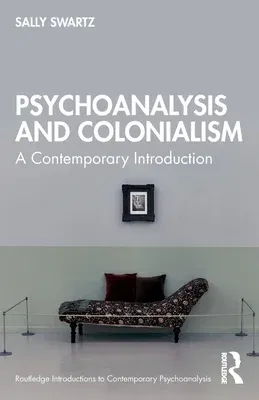Sally Swartz
(Author)Psychoanalysis and Colonialism: A Contemporary IntroductionPaperback, 23 September 2022

Qty
1
Turbo
Ships in 2 - 3 days
Only 3 left
Free Delivery
Cash on Delivery
15 Days
Free Returns
Secure Checkout

Part of Series
Routledge Introductions to Contemporary Psychoanalysis
Print Length
128 pages
Language
English
Publisher
Routledge
Date Published
23 Sep 2022
ISBN-10
036747767X
ISBN-13
9780367477677
Description
Product Details
Author:
Book Format:
Paperback
Country of Origin:
US
Date Published:
23 September 2022
Dimensions:
19.84 x
12.85 x
0.76 cm
ISBN-10:
036747767X
ISBN-13:
9780367477677
Language:
English
Location:
Oxford
Pages:
128
Publisher:
Weight:
145.15 gm